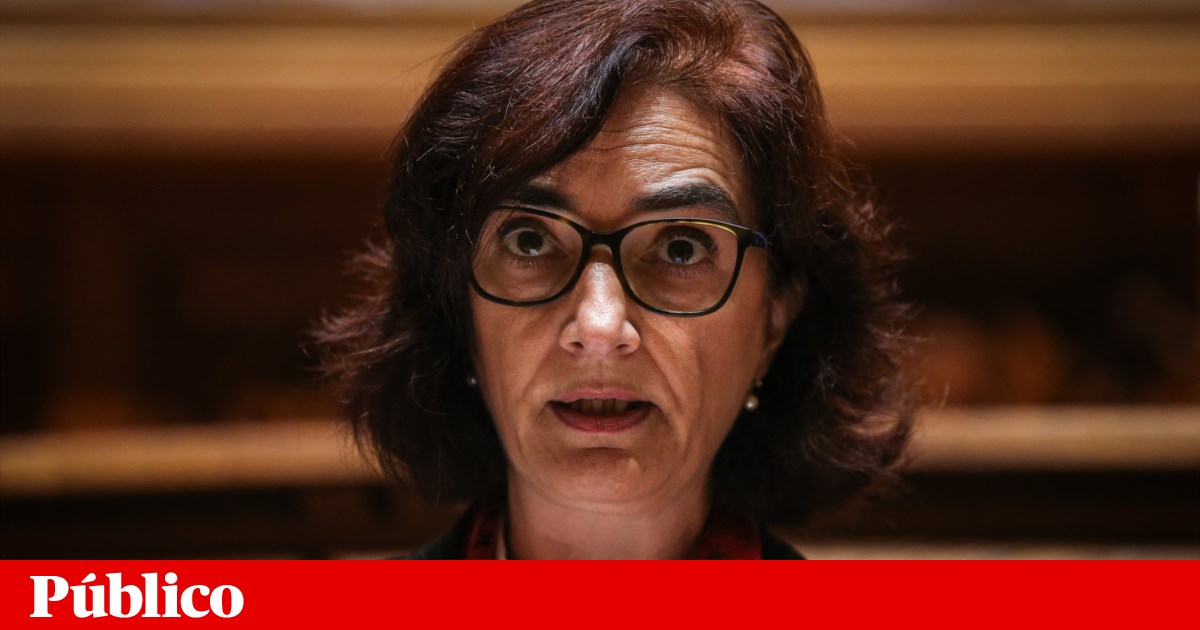The Minister of Science, Technology and Higher Education, Elvira Fortunato, said on Saturday, in Esposinde, that institutions can resolve issues related to alleged moral and sexual harassment, and has ruled out creating a national structure yet, despite seeing it as “useful”.
“Regardless of thinking of a structure at the national level to solve these problems, I think they can be solved based on the independence of higher education institutions and bodies that they have, from the code of conduct, the student provider, and from the educational boards themselves,” said the minister in Esposinde, in the province of Braga. Course directors.
On the sidelines of the laying of the foundation stone for the Laboratory of Food Innovation and Sustainability at the Polytechnic Institute of Cavado-i-do-Avi (IPCA), the Minister considered that “there are a number of entities within the institutions that can assist and receive all these complaints.”.
“But I repeat, once again, that the Ministry is open to help in whatever is necessary,” said Elvira Fortunato, stressing that she had not received any complaints so far.
This week, accusations of sexual harassment were made public by three former researchers from the Center for Social Studies (CES) at the University of Coimbra (UC) to two professors – Boaventura Souza Santos and Bruno Sina Martins – who have denied all accusations.
On Thursday, the National Federation of Higher Education criticized the existence of reporting channels managed internally by institutions, which it advocates as an alternative to a national portal that guarantees the anonymity of alleged victims and accused.
The minister acknowledged that “any structure that is created or created to avoid these situations is always beneficial, because this is not good for democracy, not good for the system, not good for anyone, not good for society”.
Asked if the ministry should take the initiative at the moment, the official preferred to wait and not “accuse people in public squares without exactly having all the evidence,” since there are “legal entities for that.”
He stressed, “We cannot act just because we read news about a specific case. There are mechanisms, and we must follow the mechanisms.”
As to whether the hierarchical nature of institutions could lead to concealing complaints for fear of reprisals, Elvira Fortunato said she did not think “that would happen, because everything is anonymous”.
“I don’t think there are reprisals at this level. I’m from a university, I know the system, and I don’t see that this is happening, that the institutions are too conservative, or that there is a fear of reprisals,” said the scientist coming from the Faculty of Science and Technology of Universidad Nova de Lisbon. This is no longer the case today.I speak for myself.
Elvira Fortunato indicated that in the case involving academics from the University of Coimbra, whose activity had already been suspended by CES, there was a “committee launched by this specific centre”, adding that she had not spoken to anyone from CES or the University of Coimbra.
On Friday, the Ministry of Science, Technology and Higher Education asked that “summary sentences” be avoided in a case of alleged moral and sexual harassment at the University of Coimbra, but guaranteed it would punish those responsible if the accusations were confirmed.

“Wannabe internet buff. Future teen idol. Hardcore zombie guru. Gamer. Avid creator. Entrepreneur. Bacon ninja.”

